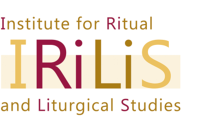IRILIS news
- Prof Mirella Klomp appointed scientific director of IRiLiSOur former director Prof Marcel Barnard delivered his exaugural address in May of this year, thereby bidding us farewell. Since then, Prof. Mirella Klomp acted as interim director. The board of IRiLiS is pleased to announce that it has now unanimously approved the appointment of Prof Mirella Klomp as the institute's new scientific director.
- Yearbook for Ritual and Liturgical Studies listed in DOAJAs of now, the Yearbook for Ritual and Liturgical Studies is referenced in The Directory of Open Access Journals (DOAJ).
- Introduction new projects and researchersTwo new researchers will start this month on different projects related to IRiLiS.
- New Academic Coordinator IRiLiSIn February 2024, Jacolien Wubs replaced Janieke Bruin-Mollenhorst as coordinator for IRiLiS.
- Continuous publications in the Yearbook for Ritual and Liturgical StudiesThe Insitute for Ritual and Liturgical Studies and the board of the Yearbook for Ritual and Liturgical Studies are pleased to announce a continuous publication model for articles in the Yearbook for Ritual and Liturgical Studies.
- Research Project on Religion and Climate Change in the NetherlandsA new research project at Tilburg School of Theology aims to provide insights into the religious vocabularies used in climate change discourse in the Netherlands and abroad.
- New publication in Netherlands Studies in Ritual and Liturgy on genocide commemoration and reconciliation in Rwanda.On 14 March Célestin Nsengimana defended his thesis: Genocide Commemoration and Reconciliation in Rwanda from a Liturgical Ritual Perspective.
- Call for Papers Yearbook for Ritual and Liturgical StudiesYou are kindly invited to submit a manuscript for publication in the online journal Yearbook for Ritual and Liturgical Studies. The deadline for submitting articles is 1 May.

